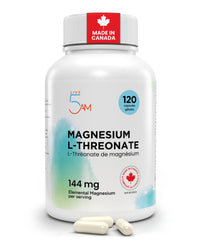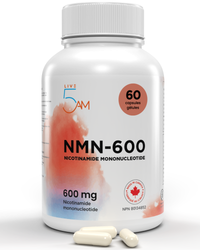Why Sleep Still Feels Like a Puzzle
Despite all the sleep hacks, blue-light blockers, fancy mattresses, and sleep tracking apps, many of us still wakeup tired. Why? Because real, lasting sleep improvementcomes from understanding your body’s chemistry andrhythm, not just your bedroom.
Your Sleep is a Mirror of Your Day
What happens during the day-shapes how your brain winds-down at night. High stress, erratic meals, and overstimulation all disrupt your internal clock. In other words, your brain doesn’t just need rest, it needs balance.
Magnesium: The Calm-Down Signal
Magnesium, especially Magnesium Bisglycinate, plays a vital rolein how your nervous system relaxes before sleep. A 2012 studyfrom the Journal of Research in Medical Sciences found that olderadults who supplemented with magnesium slept longer anddeeper. It helps increase GABA, a neurotransmitter that quiets the brain.
What's Actually Making Sleep Worse
-
Caffeine after 2 p.m
-
Working in bed (confuses your brain’s sleep cues)
-
Bright screens at night (delays melatonin)
-
Weekend “catch-up sleep” ( disrupts body clock further)
What Works - Backed by Science
- Stick to consistent sleep/wake times, even on weekends
- Use warm, low lighting in the evening
- Take Magnesium Bisglycinate 1–2 hours before bed
- Journal for 5 minutes to reduce mental chatter
Small habits done consistently lead to long-term energy shifts.
Magnesium Bisglycinate
Gentle, Absorbable, and blended to help you unwind without grogginess. Our magnesium is your nighttime ally, for calm evenings and brighter mornings.








